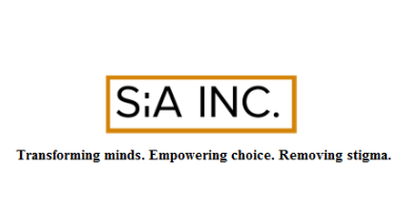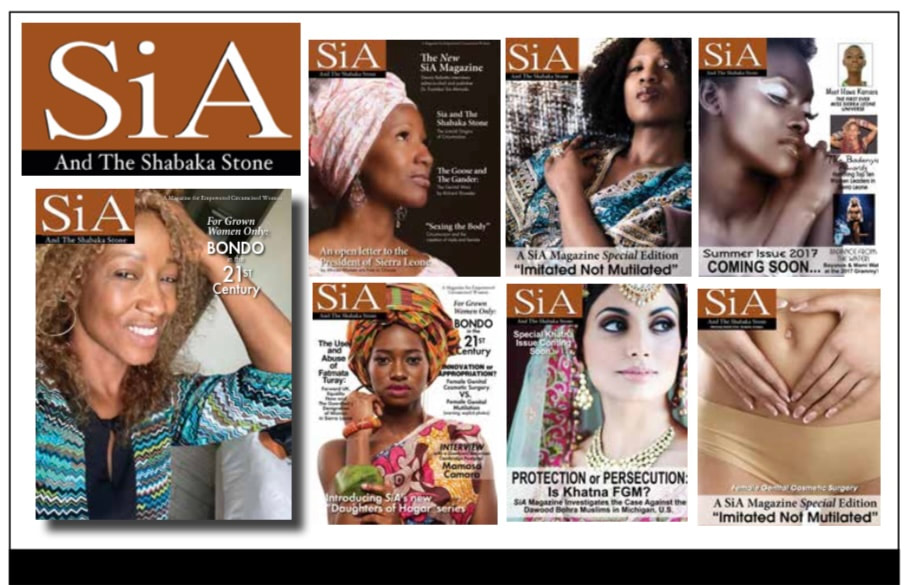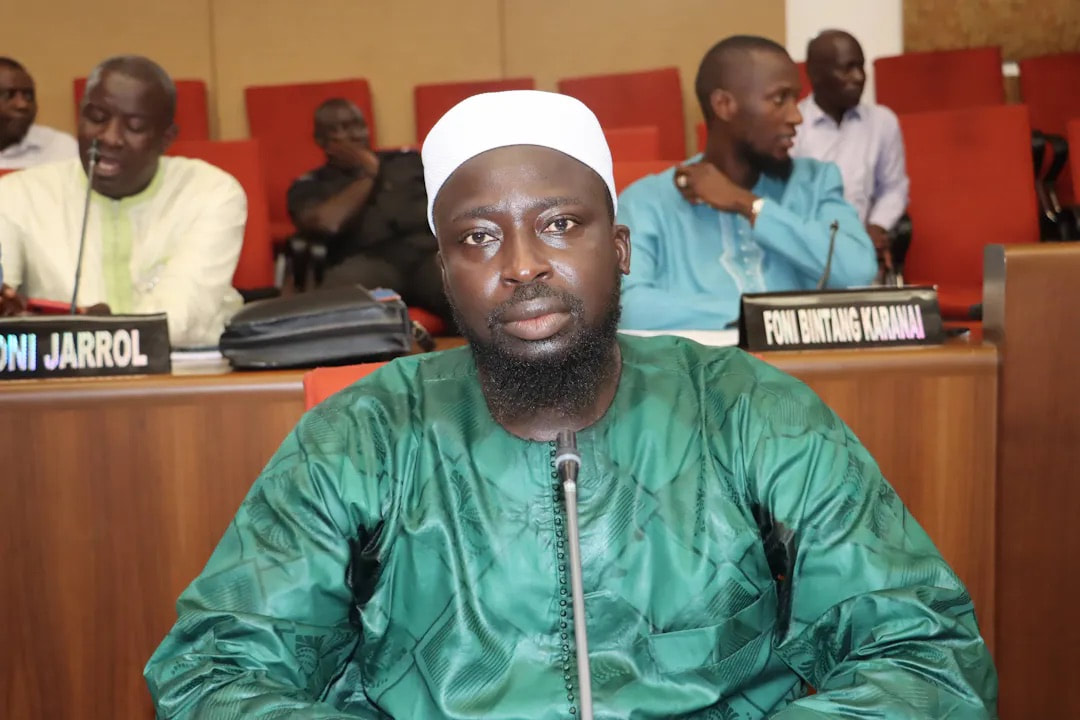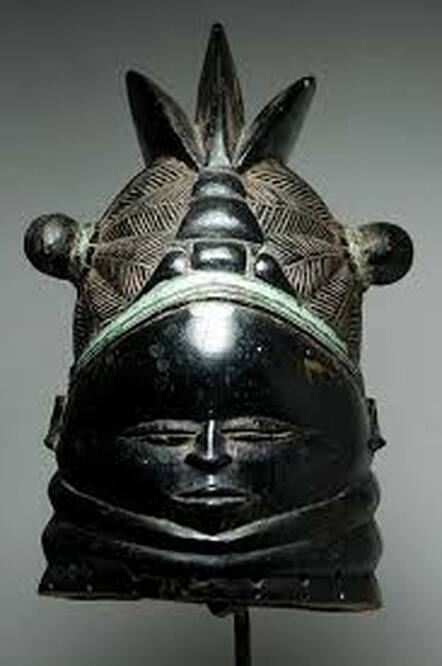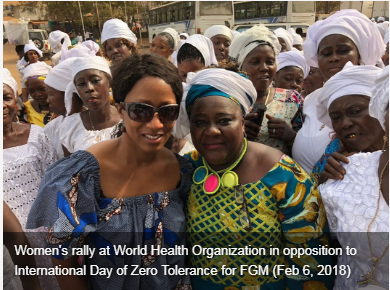SiA Magazine is Back! Enjoy our free sneak peak of the 1st Quarter 2024 issue. Feel free to download and share with friends!
Your browser does not support viewing this document. Click here to download the document.
Rethinking Criminalization of "FGM"
SiA and The Shabaka Stone
Preserving our Heritage
The Origin of SiA
My name is Sia. This was automatically given to me at birth because I am the firstborn female of a mother from the Mande-speaking ethnic group, the Kono, in Sierra Leone, West Africa. The first born male is always named Saa. As Mande descendants, our oral traditions of creation clearly link us to Sia/Saa of the Nubian/Egyptian Ennead. The African Pharaoh, Shabaka, preserved our ancestral religion in what is known today as the Shabaka Stone. The Shabaka Stone, like much of Africa’s stolen art, can be found not on African soil but in Europe, notably the British Museum in London.
SiA and Circumcision
Sia (or Saa), according to Memphite cosmology, which predates Abrahamic religions, is the name of the first being formed by the Creator God, Atum, through the blood of "His" own Phallus. Circumcision (both female and male) is of African socio-religious origin and this powerful symbolic act has been adopted and adapted by many cultures and religious traditions throughout world history.
I am a born-again Christian and my husband is a Muslim but I am also an anthropologist and I believe it is necessary that African descendants (who have been told that we have no history or culture independent of Europeans that is worth knowing about let alone preserving) understand the origins of our ancestral religions and how these beliefs and practices have influenced Abrahamic religions. Circumcision is what bridges this knowledge of our past with who we are in the present.
Why this website?
I created this website as a platform to celebrate and share knowledge about the African origins of circumcision and especially to encourage women who uphold female circumcision in various parts of the world. As the founder of SiA Inc. my main mission is to advance the rights of adult circumcised women to equality, dignity, and self-determination in preserving this important cultural and religious bodily practice.
How can people learn more?
I encourage visitors who want to learn more about my previous research and writings or the varied experiences and positions of circumcised women from diverse cultures and religious traditions to explore this website. In the Q&A section, blogs and upcoming podcasts or vlogs, I tackle issues about the clitoris, sexuality, gender, consent, health, human rights, the anti-FGM movement and much, much more. There are other platforms that focus on my advocacy and activism in Africa and among immigrants from practicing societies residing in Western countries (see www.awafc.org and www.siamagazine.com). There are the voices of other women such as @MamiNaPawa and @CuttingVoices that present alternative experiences of women who support female circumcision.
For academics, researchers, students, journalists and others who are open-minded and interested in listening to the voices of the vast majority of circumcised women who have been forcefully silenced by FGM campaigners, feel free to contact me or any staff with further questions, comments or requests to book a speaking event for your group, organization or academic institution.
In Knowledge and Truth,
Fuambai Sia Nyoko Ahmadu, PhD
Founder, SiA Inc.
My name is Sia. This was automatically given to me at birth because I am the firstborn female of a mother from the Mande-speaking ethnic group, the Kono, in Sierra Leone, West Africa. The first born male is always named Saa. As Mande descendants, our oral traditions of creation clearly link us to Sia/Saa of the Nubian/Egyptian Ennead. The African Pharaoh, Shabaka, preserved our ancestral religion in what is known today as the Shabaka Stone. The Shabaka Stone, like much of Africa’s stolen art, can be found not on African soil but in Europe, notably the British Museum in London.
SiA and Circumcision
Sia (or Saa), according to Memphite cosmology, which predates Abrahamic religions, is the name of the first being formed by the Creator God, Atum, through the blood of "His" own Phallus. Circumcision (both female and male) is of African socio-religious origin and this powerful symbolic act has been adopted and adapted by many cultures and religious traditions throughout world history.
I am a born-again Christian and my husband is a Muslim but I am also an anthropologist and I believe it is necessary that African descendants (who have been told that we have no history or culture independent of Europeans that is worth knowing about let alone preserving) understand the origins of our ancestral religions and how these beliefs and practices have influenced Abrahamic religions. Circumcision is what bridges this knowledge of our past with who we are in the present.
Why this website?
I created this website as a platform to celebrate and share knowledge about the African origins of circumcision and especially to encourage women who uphold female circumcision in various parts of the world. As the founder of SiA Inc. my main mission is to advance the rights of adult circumcised women to equality, dignity, and self-determination in preserving this important cultural and religious bodily practice.
How can people learn more?
I encourage visitors who want to learn more about my previous research and writings or the varied experiences and positions of circumcised women from diverse cultures and religious traditions to explore this website. In the Q&A section, blogs and upcoming podcasts or vlogs, I tackle issues about the clitoris, sexuality, gender, consent, health, human rights, the anti-FGM movement and much, much more. There are other platforms that focus on my advocacy and activism in Africa and among immigrants from practicing societies residing in Western countries (see www.awafc.org and www.siamagazine.com). There are the voices of other women such as @MamiNaPawa and @CuttingVoices that present alternative experiences of women who support female circumcision.
For academics, researchers, students, journalists and others who are open-minded and interested in listening to the voices of the vast majority of circumcised women who have been forcefully silenced by FGM campaigners, feel free to contact me or any staff with further questions, comments or requests to book a speaking event for your group, organization or academic institution.
In Knowledge and Truth,
Fuambai Sia Nyoko Ahmadu, PhD
Founder, SiA Inc.
Highlights of Past Events
Dr. Fuambai Ahmadu is the NOSLINA "Diamond Award" Winner of 2018!!
15 years of Service to Sierra Leonean and Gambian Communities!
The Discussions Are Here!
Watch more discussions on our new YouTube channel!
Female Circumcision Awareness Week in Sierra Leone
Click here to view highlights of our activism
Watch Fuambai's interview with Fox News' Tucker Carlson
No place for "FGM" in the 21st Century says President Barack Obama?
Click here to watch Fuambai's response on BBC's Hardtalk
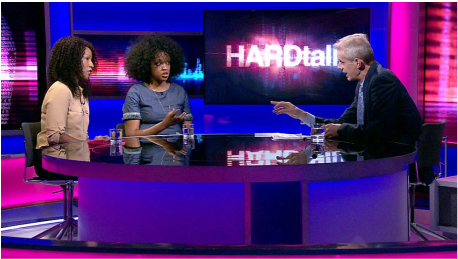
The Hastings Center Report: Seven Things to Know About Female Genital Surgeries in Africa
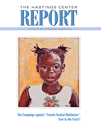
Starting in the early 1980s, media coverage of customary African genital surgeries for females has been problematic and overly reliant on sources from within a global activist and advocacy movement opposed to the practice, variously described as female genital mutilation, female genital cutting, or female circumcision. Here, we use the more neutral expression female genital surgery. In their passion to end the practice, anti-mutilation advocacy organizations often make claims about female genital surgeries in Africa that are inaccurate or overgeneralized or that don't apply to most cases.
The aim of this article—which we offer as a public policy advisory statement from a group of concerned research scholars, physicians, and policy experts—is not to take a collective stance on the practice of genital surgeries for either females or males. Our main aim is to express our concern about the media coverage of female genital surgeries in Africa, to call for greater accuracy in cultural representations of little-known others, and to strive for evenhandedness and high standards of reason and evidence in any future public policy debates. In effect, the statement is an invitation to actually have that debate, with all sides of the story fairly represented. Read more..
